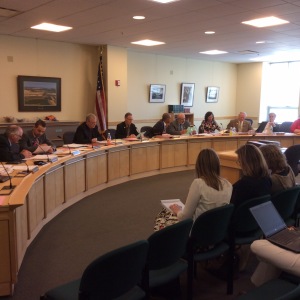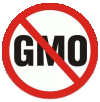 Tuesday May 12, 2015 was a very good day for small farmers and their patrons in the Maine State Legislature. The Joint Standing Committee on Agriculture, Conservation and Forestry met to have work sessions on four local food rights bills.
Tuesday May 12, 2015 was a very good day for small farmers and their patrons in the Maine State Legislature. The Joint Standing Committee on Agriculture, Conservation and Forestry met to have work sessions on four local food rights bills.
The results were extremely gratifying for those of us who have worked so hard to protect the people of Maine’s rights to practice their traditional food ways. Each of these bills seeks to advance the principles and the content, partially or in full, of the Local Food and Community Self-Governance Ordinance (LFCSGO) now passed in 13 towns in Maine. While local control of food continues to spread outward from town to town in Maine, we now have a visible sign that the community governance of food may be ready to move upward to the state level as well!
These are just preliminary results but the strong support of the committee will go a long way to helping these bills pass on the floors of the House and the Senate. Some legislators are very confident the bills will pass, but some suspect they could still be derailed by the unpredictable and unseen forces of Augusta politics. Don’t stop working on passing the Local Food and Community Self-Governance Ordinance if your town is considering it; it may prove more important than ever.
LD # 925 An Act To Promote Small Diversified Farms and Small Food Producers
Summary: This bill facilitates direct sales between Maine farmers and consumers. It allows persons preparing food in their own homes to sell directly to consumers or to offer homemade food at certain events without being licensed as food establishments.
NOTE: A bill sponsored by one of our strongest allies in the House Representative Ralph Chapman was voted out of committee with a strong Ought To Pass with only one Representative voting against it. [On 5/14 this bill was brought up again and the restrictions on where these transactions could take place, i.e. not at farmer’s markets, were reinstated and the vote was unanimous.]
LD # 1291 An Act To Promote Food Self-sufficiency for the People of the State
Summary: This bill directs the Department of Agriculture, Conservation and Forestry, in coordination with various state agencies, to develop and administer an agricultural jobs network linking farms and facilities that process agricultural products grown in the State with available workers who are involved in farming or a local food industry or who are required to perform community service and to develop an educational marketing campaign to promote food self-sufficiency by encouraging the public to grow gardens, to raise farm animals and to preserve garden-grown food. This bill also requires the department, to the extent practicable, to purchase food grown, harvested, prepared, processed or produced in the State when purchasing food for an emergency or supplemental food program for elderly or low-income persons.
NOTE: Representative Craig Hickman’s bill that covers all our bases and was voted out of committee with a unanimous Ought to Pass with a slight amendment to clarify language about end consumers. In section 4 it contains the local food sovereignty language.
LD # 1376 An Act To Establish a Local Food Producers and Processors to Consumers Pilot Program
Summary: This bill establishes the Local Food Producers and Processors to Consumers Pilot Program. The pilot program exempts local producers and processors in the towns of Blue Hill, Brooksville, Penobscot, Sedgwick and Brooklin, all of which have adopted local food self-governance ordinances, from all state licensure and inspection requirements with respect to the production and processing of local foods for sale directly to consumers. The pilot program is repealed in 2022. Each year the Department of Agriculture, Conservation and Forestry is required to submit a report on the pilot program to the joint standing committee of the Legislature having jurisdiction over agricultural matters including any assessment of or comments about the pilot program provided by interested persons, including producers, processors and consumers participating in the pilot program. Upon receipt of the report, the committee may report out a bill relating to the pilot program.
NOTE: This bill was sponsored by Senator Brian Langley and was voted out of committee unanimously Ought to Pass. The towns listed are some of the first to pass the local food sovereignty ordinance and were chosen because of their geographic closeness allows for the easy forming of a local food council.
LD # 1284 An Act To Expand the Local Foods Economy
Summary: This bill requires the Department of Agriculture, Conservation and Forestry to administer programs to support the expansion and coordination of the use of fresh Maine foods in aggregated and institutional markets, including school food service programs.
The Department of Agriculture, Conservation and Forestry is directed to provide grants under the agricultural development grant program for the purpose of conducting market feasibility studies and developing business plans for local food infrastructure operations in Maine to connect and enhance relationships between fresh food producers in Maine and aggregated and institutional markets, including school food service programs, and food purveyors. The Commissioner of Agriculture, Conservation and Forestry may not award a local foods grant unless the applicant provides matching funds in an amount that is no less than 50% of the grant amount.
The department is also directed to provide loans under the Agricultural Marketing Loan Fund to applicants in diverse geographic areas in the State for the purpose of establishing local food infrastructure operations located in Maine. Prior to awarding a local food infrastructure loan, the Commissioner of Agriculture, Conservation and Forestry is required to determine that the potential overall impact of a proposal on Maine’s agricultural economy and industry is beneficial to and in the best interest of the State.
The bill also establishes the Maine Food Infrastructure Advisory Committee, which includes representatives of statewide and regional organizations involved in supporting agriculture, public health, the environment and the state economy, including representatives of the member entities of the farm-to-school work group established by Resolve 2009, chapter 106.
NOTE: This excellent bill introduced by Senator Chris Johnson and co sponsored by five members of the committee (Hickman, Dill, Saviello Chapman and Marean) sadly passed out of committee on a divided vote 7-5 Ought Not to Pass. It may still go to a vote in the two houses so there is still hope. It addresses our critical need to rebuild the local food infrastructure.
You can find further information on these bills by going to the web site of the Maine Legislature (http://legislature.maine.gov/) and putting the bill number in the box labeled LD #. Note that the Presenters of the bills in the work session are the original sponsors; each is approaching the issue of community self-governance of local food and protecting traditional food-ways from a different angle. Each is also a co-sponsor of other bills; you can find all co-sponsors on the web site. Look for your legislator and write in thanks if they are listed for any of these bills. Ask for their help on getting them passed in the full legislature.



 Posted by savingseeds
Posted by savingseeds 









